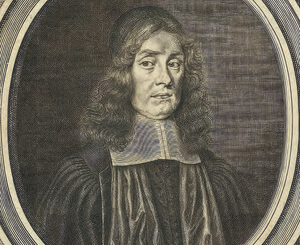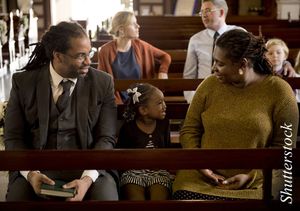John Calvin’s Institutes have earned him the title of ‘the pre-eminent systematician of the Protestant Reformation’. His reputation as an intellectual, however, is often seen apart from the vital spiritual and pastoral context in which he wrote his theology.
For Calvin, theological understanding and practical piety, truth and usefulness, are inseparable. Theology first of all deals with knowledge – knowledge of God and of ourselves – but there is no true knowledge where there is no true piety.
Calvin’s concept of piety (pietas) is rooted in the knowledge of God and includes attitudes and actions that are directed to the adoration and service of God. In addition, his pietas includes a host of related themes, such as filial piety in human relationships and respect and love for the image of God in human beings.
Calvin’s piety is evident in people who recognise through experiential faith that they have been accepted in Christ and engrafted into his body by the grace of God. In this ‘mystical union’, the Lord claims them as his own in life and in death. They become God’s people and members of Christ by the power of the Holy Spirit. This relationship restores their joy of fellowship with God; it recreates their lives.
The Meaning of Biblical Piety
Calvin’s piety is fundamentally biblical, with an emphasis on the heart more than the mind. Head and heart must work together, but the heart is more important. Pietas is one of the major themes of Calvin’s theology. His theology is, as John T. McNeill says, ‘his piety described at length’. He is determined to confine theology within the limits of piety.
In his preface addressed to King Francis I, Calvin says that the purpose of writing the Institutes was ‘solely to transmit certain rudiments by which those who are touched with any zeal for religion might be shaped to true godliness [pietas]’.
For Calvin, pietas designates the right attitude of man towards God. This attitude includes true knowledge, heartfelt worship, saving faith, filial fear, prayerful submission, and reverential love. Knowing who and what God is (theology) embraces right attitudes toward him and doing what he wants (piety).
In his first catechism, Calvin writes, ‘True piety consists in a sincere feeling which loves God as Father as much as it fears and reverences him as Lord, embraces his righteousness, and dreads offending him worse than death’. In the Institutes, Calvin is more succinct: ‘I call “piety” that reverence joined with love of God which the knowledge of his benefits induces’. This love and reverence for God is a necessary concomitant to any knowledge of him and embraces all of life.
As Calvin says, ‘The whole life of Christians ought to be a sort of practice of godliness’. Or, as the subtitle of the first edition of the Institutes states, ‘Embracing almost the whole sum of piety and whatever is necessary to know of the doctrine of salvation: A work most worthy to be read by all persons zealous for piety’.
The Goal of Piety
Calvin’s commentaries also reflect the importance of pietas. For example, he writes on 1 Timothy 4:7-8, ‘You will do the thing of greatest value, if with all your zeal and ability you devote yourself to godliness [pietas] alone. Godliness is the beginning, middle and end of Christian living. Where it is complete, there is nothing lacking … Thus the conclusion is that we should concentrate exclusively on godliness, for when once we have attained to it, God requires no more of us’.
Commenting on 2 Peter 1:3, he says, ‘As soon as he [Peter] has made mention of life he immediately adds godliness [pietas] as if it were the soul of life’. The goal of piety, as well as the entire Christian life, is the glory of God – glory that shines in God’s attributes, in the structure of the world, and in the death and resurrection of Jesus Christ.
Glorifying God supersedes personal salvation for every truly pious person. Calvin writes thus to Cardinal Sadolet: ‘It is not very sound theology to confine a man’s thought so much to himself, and not to set before him, as the prime motive for his existence, zeal to illustrate the glory of God … I am persuaded that there is no man imbued with true piety who will not consider as insipid that long and laboured exhortation to zeal for heavenly life, a zeal which keeps a man entirely devoted to himself and does not, even by one expression, arouse him to sanctify the name of God’.
The Pious Man
That God may be glorified in us, the goal of piety, is the purpose of our creation. It thus becomes the yearning of the regenerate to live out the purpose of their original creation. The pious man, according to Calvin, confesses, ‘We are God’s: let us therefore live for him and die for him. We are God’s: let his wisdom and will therefore rule all our actions. We are God’s: let all the parts of our life accordingly strive toward him as our only lawful goal’.
God redeems, adopts, and sanctifies his people that his glory might shine in them and deliver them from impious self-seeking.
The pious man’s deepest concern therefore is God himself and the things of God – God’s Word, God’s authority, God’s gospel, God’s truth. He yearns to know more of God and to commune more with him. But how do we glorify God?
Calvin writes, ‘God has prescribed for us a way in which he will be glorified by us, namely, piety – which consists in the obedience of his Word. He that exceeds these bounds does not go about to honour God, but rather to dishonour him’.
Obedience to God’s Word means taking refuge in Christ for forgiveness of our sins, knowing him through his Word, serving him with a loving heart. It also means doing good works in gratitude for his goodness and exercising self-denial to the point of loving our enemies.
This response involves total surrender to God himself, his Word, and his will. Calvin says, ‘I offer thee my heart, Lord, promptly and sincerely’. This is the desire of all who are truly pious.
However, this desire can only be realised through communion with Christ and participation in him, for outside of Christ even the most religious person lives for himself. Only in Christ can the pious live as willing servants of their Lord, faithful soldiers of their Commander, and obedient children of their Father.
Union with Christ
David Willis-Watkins writes: ‘Calvin’s doctrine of union with Christ is one of the most consistently influential features of his theology and ethics, if not the single most important teaching that animates the whole of his thought and his personal life’.
Calvin did not intend to present theology from the viewpoint of a single doctrine. Nonetheless, his sermons, commentaries, and theological works are so permeated with the union-with-Christ doctrine that it becomes his focus for Christian faith and practice. Calvin says as much when he writes, ‘That joining together of Head and members, that indwelling of Christ in our hearts – in short, that mystical union – are accorded by us the highest degree of importance, so that Christ, having been made ours, makes us sharers with him in the gifts with which he has been endowed’.
For Calvin, piety is rooted in the believer’s mystical union (unio mystica) with Christ; thus this union must be our starting point. Such a union is possible because Christ took on our human nature, filling it with his virtue. Union with Christ in his humanity is historical, ethical and personal, but not ‘essential’. There is no crass mixture (crassa mixtura) of human substances between Christ and us.
Nonetheless, Calvin states, ‘Not only does he cleave to us by an indivisible bond of fellowship, but with a wonderful communion, day by day, he grows more and more into one body with us, until he becomes completely one with us’.
Sanctification
This union is one of the gospel’s greatest mysteries. Because of the fountain of Christ’s perfection in our nature, the pious may, by faith, draw whatever they need for their sanctification.
Christ is the source from which his people derive life and power. If Christ had died and risen but was not applying his salvation to believers for their regeneration and sanctification, his work would have been ineffectual.
Our piety shows that the Spirit of Christ is working in us what has already been accomplished in Christ. Christ administers his sanctification to the church through his royal priesthood, so that the church may live piously for him.
Joel Beeke


















